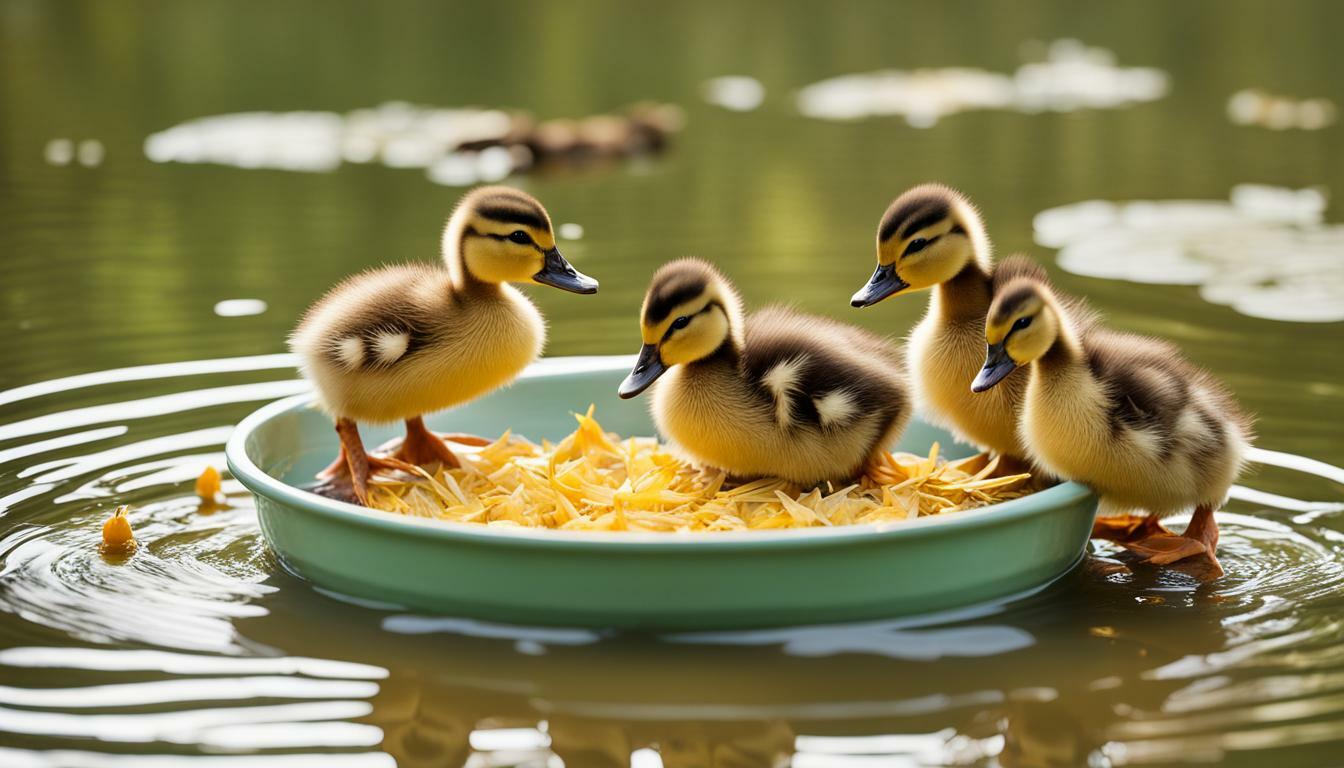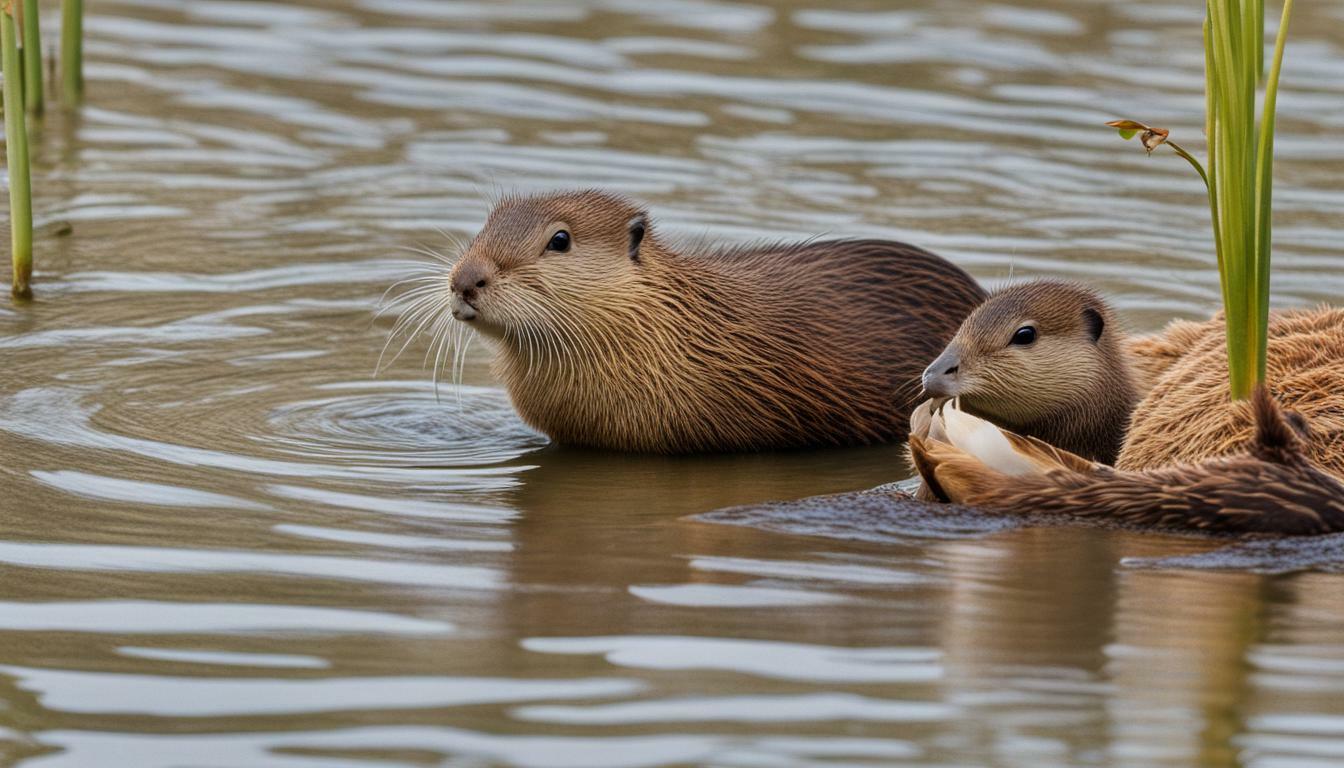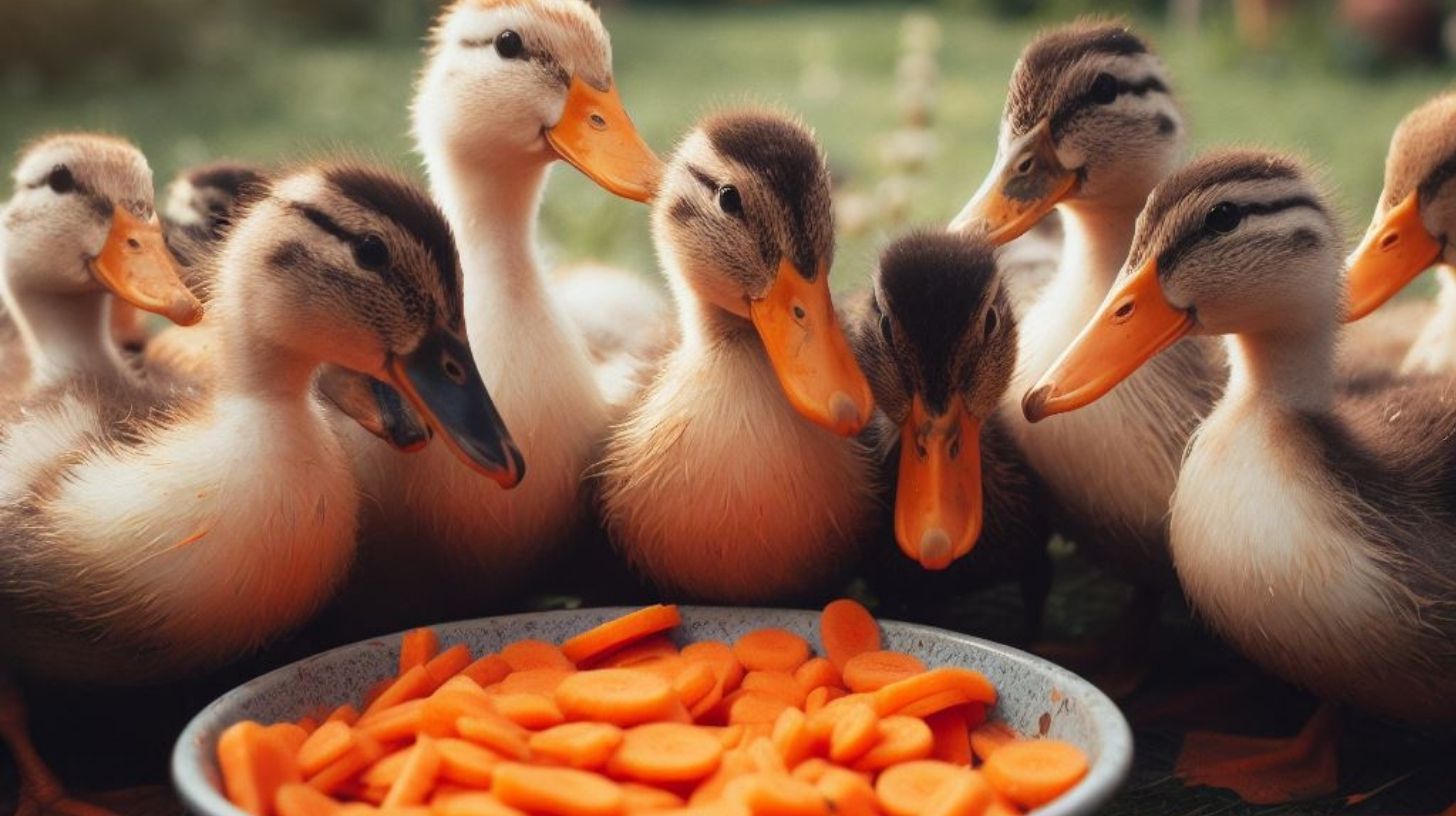What Do Baby Ducks Eat? Duckling Nutrition

Table of content:
Raising baby ducks can be an incredibly rewarding experience. Watching those fuzzy little ducklings grow from helpless hatchlings to fully feathered ducks is amazing. However, keeping ducklings healthy requires meeting their nutritional needs. So what do baby ducks eat?
How Often Should I Feed Baby Ducks?
Baby ducks need to eat frequently to support their rapid growth. For the first few weeks of life, ducklings should be fed every 2-4 hours. This frequent feeding continues until they are around 3-4 weeks old.
By this age, they are ready to start slowly reducing the feeding frequency. At 4-6 weeks old, you can decrease feedings to every 5-6 hours during the day. Always leave food available overnight, so ducklings can eat on their own schedule.
The feeding amount will also increase quickly as ducklings grow. Keep a close eye on how much they consume at each mealtime and adjust amounts accordingly. By following their lead on consumption, you can meet their nutritional needs for healthy development.
What Can I Feed Wild Baby Ducks?
If you find yourself caring for wild ducklings, choosing proper foods is critical. Wild ducks have different nutritional needs than domestic breeds. Here are some healthy options:
- Ducks starter crumbles: This commercial food is specifically formulated for young ducks. Look for a starter feed that is at least 20% protein.
- Mealworms: High in protein, fat, and nutrients, mealworms make an excellent supplement.
- Greens: Finely chopped kale, spinach, swiss chard, and lettuce provide necessary vitamins and minerals.
- Seeds: A seed mix with millet, wheat, oats, and corn gives ducklings healthy carbs and fiber.
- Fruits: Chopped berries, grapes, and melons add beneficial nutrients.
Avoid bread, crackers, popcorn, or junk food. These empty calories can quickly lead to malnourishment and death. Get wild ducklings to a wildlife rehabilitator as soon as possible.
Do Baby Ducks Eat Worms?
Worms provide an excellent source of protein for ducklings. In the wild, baby ducks will forage for worms and aquatic insects. These foods supply key amino acids required for growth and development.
Mealworms and earthworms are nutritious options you can provide at home. Chop worms into bite-size pieces for young ducklings. You can also use tweezers to hand feed worms to get ducklings used to this new food.
Always feed worm treats in moderation along with a complete starter feed. While worms are nutritious, they do not provide full nutrition on their own. Aim to offer a few worms 1-2 times per day.
Do Baby Ducklings Drink Water?
Water is extremely important for ducklings to digest food and thrive. In the wild, ducklings get hydration from the ponds and streams where they live. At home, clean drinking water must be provided at all times.
Start ducklings on shallow chick waterers or trays filled with marbles. This allows them to sip water while minimizing drowning risk. Gradually introduce a deeper, open container of water as they grow.
Change the water at least twice a day to keep it clean. Rinse waterers thoroughly too. Dirty water can cause bacterial infections that make ducklings sick.
Monitor to ensure each duckling is drinking regularly. Dehydration is dangerous at this young age. Contact a vet if any show signs of dehydration like lethargy or wrinkled skin. Providing plenty of fresh, clean water is crucial.
What Do Baby Ducks Eat in the Wild?
In the wild, baby ducks have a varied diet rich in nutrients. Their mother leads them to different natural food sources. Here’s what wild ducklings typically eat:
- Aquatic plants: Ducklings forage on pondweed, water lilies, hydrilla, and other greens. These provide vitamins A and K.
- Insects: Protein-rich aquatic bugs, mosquito larvae, flies, dragonflies, and midges are eagerly consumed.
- Crustaceans: Dabbling in shallow water to catch small shrimp and other crustaceans.
- Seeds: Foraging among lakeside grass and vegetation for nourishing seeds.
- Algae: Some green algae provides essential B vitamins as well as protein.
- Tadpoles: These offer a good source of protein for growing ducklings.
This varied diet provides well-balanced nutrition in the wild. But at home, a commercial starter feed is the simplest way to meet ducklings’ dietary needs.
When Do Baby Ducks Start Eating on Their Own?
Ducklings start out fully dependent on their mother or caregiver for food. They do not have full control of their bills and cannot pick up food on their own. So you need to place food directly in their mouths.
Gradually over the first 2-3 weeks, ducklings gain bill coordination and start testing out self-feeding. You will notice them picking up bits of foods and eagerly tasting.
At 3-4 weeks old, young ducks have adequate skills for self-feeding. They can forage and consume enough food independently to meet their needs.
Still monitor intake and provide ample fresh food at this stage. But the days of hand-feeding each mouthful are over. Your ducklings are growing into strong, self-sufficient ducks!
What Greens Can I Feed Baby Ducks?
Fresh greens provide important nutrients and variety to a duckling diet. Chopped kale, spinach, swiss chard, romaine lettuce, and other leafy greens can be offered. Here are some healthy feeding guidelines:
- Chop greens finely so ducklings can swallow pieces easily.
- Introduce new greens gradually to watch for any diarrhea or upset stomachs.
- Offer a couple tablespoons per duckling mixed into their feed.
- Rotate different greens to provide a diverse mix of vitamins.
- Always wash greens thoroughly to remove dirt, chemicals, or contaminants.
Feed greens in moderation along with a complete starter feed. While fruits and veggies add beneficial nutrients, they should not become the main component of their diet. Aim for 80% balanced starter feed, supplemented with some fresh greens daily.
Conclusion
Raising healthy ducklings is very rewarding but requires knowledge about their unique nutritional requirements. From the frequent feeding of hatchlings to transitioning to self-feeding as juveniles, providing a balanced duckling diet is key. Follow this guide on what to feed baby ducks, from commercial starter feeds to fresh fruits and veggies. With proper nutrition and care, your ducklings will continue to thrive.
Welcome. I’m Adreena Shanum, the proud owner of this website, and I am incredibly passionate about animals, especially poultry. I founded adreenapets.com as a labor of love, stemming from my desire to share my knowledge and experiences with poultry enthusiasts worldwide.




